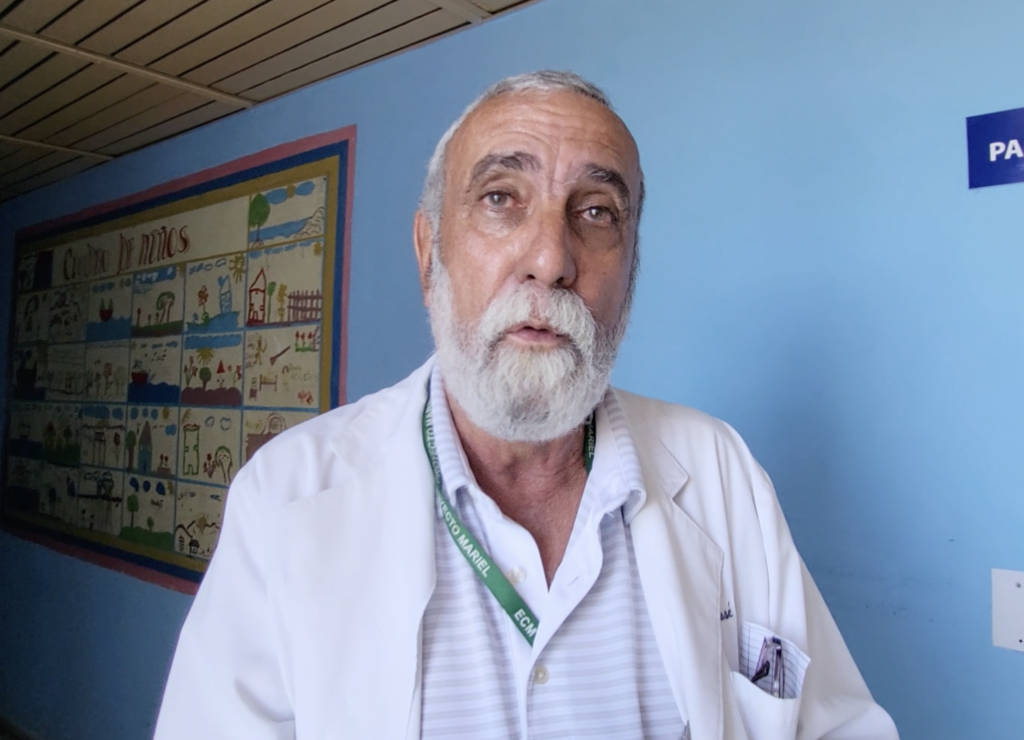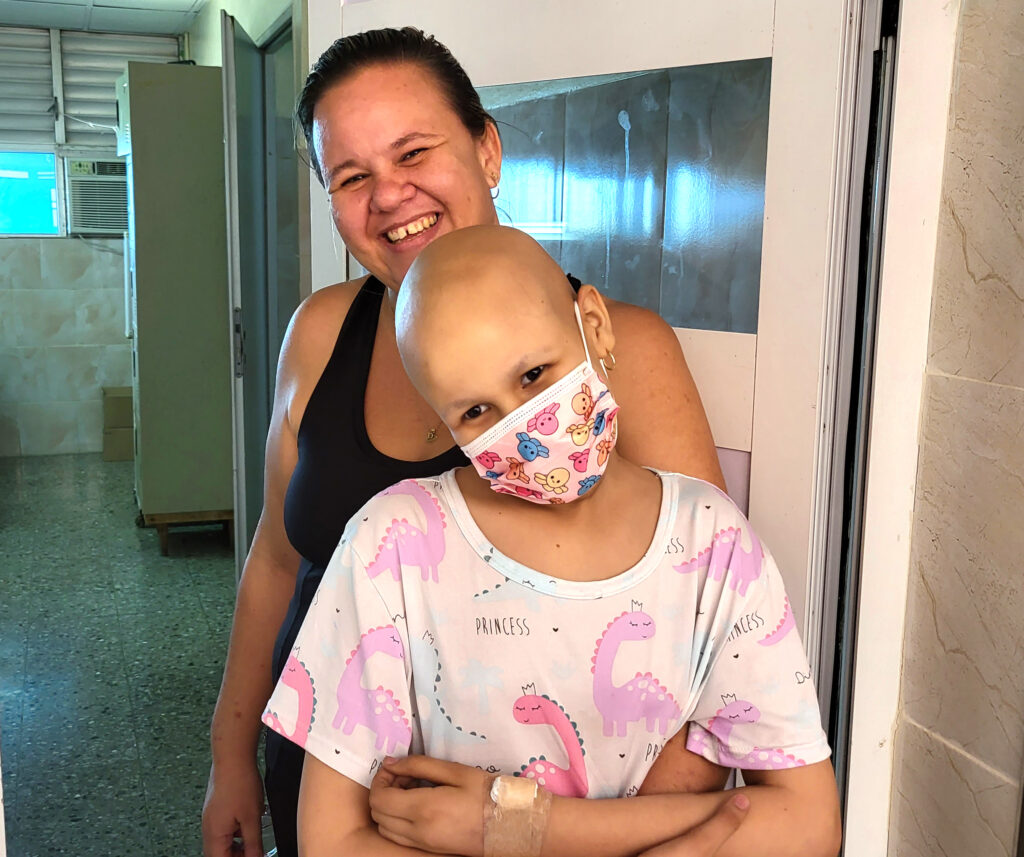by Rachel Viqueira
One cannot help but feel great compassion when the announcements appear on U.S. television about children’s hospitals like St. Jude’s or Shriner’s Children’s Hospital. Everyone understands that these children deserve all the care and love they need to get better.
But Cuban children like Isabel and hundreds more like her don’t get seen on U.S. television. But if the U.S. people knew how cruelly they are denied critical medicines because of the U.S. blockade, we are convinced the American people would act.
Activists of the Hatuey Project have announced a new campaign to provide cancer medication to children with leukemia and lymphoma in Cuba. The campaign is also developing a long-term partnership between Cuban and U.S. oncologists.
This past June, organizers of the Hatuey Project met with Cuban doctors and nurses at Juan Manuel Márquez Pediatric Hospital in Havana, at the José Luis Miranda Pediatric Hospital in Santa Clara, and with the Institute of Hematology and Immunology in Havana, where they learned that doctors have been unable to purchase much-needed medications and materials due to the U.S. blockade.

Dr. José Valdez, the director of the oncology department at Juan Manuel Márquez Pediatric Hospital said, “In Cuba, there are medications we have to buy from third countries because of the blockade restrictions… we have to seek another country often far away. It is cumbersome and costs much more with shipping and time.“
“This means that sometimes we do not have the ideal or indicated medications for the specific illness of the child. We use an alternative, which does not give the same result. It is the children that pay the price for this needless policy.”

We met 12-year-old Isabel, who is isolated to protect her while she receives treatment. She handed Dr. Valdés a beautiful two-page color drawing dedicated to him, saying, “you care about lives.” Very touched, he told her, “God bless you.”
Very few people in the U.S. understand the peril that Cuban children with cancer encounter by the U.S. economic blockade and more recently, the “state sponsor of terrorism” label (SSOT), the latest attack on Cuba’s right to live, which Washington has imposed on Cuba.
Critical medicines are literally blocked by the United States government because many are produced in the U.S. and therefore fall under government prohibitions to export to Cuba.
The SSOT designation was first declared by President Trump in his last week as president, but it was signed into enforcement by President Biden. This is an illegal and unilateral coercive measure, used solely by the U.S.
With particular cruelty, Washington falsely charges Cuba with sponsoring terrorism, when it is Cuba that has suffered 3,478 deaths of its citizens by terrorist attacks, often sponsored by the CIA or its accomplices. The Hatuey Project, along with all of the other Cuba solidarity organizations in the U.S. and around the world, have mobilized to demand the lifting of the SSOT label, and for the end of the blockade.
In the meantime, we and many other groups are working mightily to help provide medicines for the people of Cuba, in solidarity and friendship. Children with leukemia and lymphoma have a survival rate of over 90% with immediate and complete treatment of their cancer. All they need is the medicine and materials. They already have loving and dedicated doctors and nurses who work nonstop to care for them.
To our readers and supporters, we say: You can play a major part. Your donations will go toward the purchase of cancer medicines that U.S. doctors and pharmacists are helping us to obtain. The sooner we can raise the funds, the sooner it will reach Cuban children.
The Hatuey Project aims to raise $75,000 to purchase medication such as methotrexate, ifosfamide, imatanib methylate, mesna, ifosfamide, piperacillin and tazobactam, needles and syringes and trocars to ensure that children at Juan Manuel Márquez Pediatric Hospital will be able to complete their full cancer treatment regiments.
